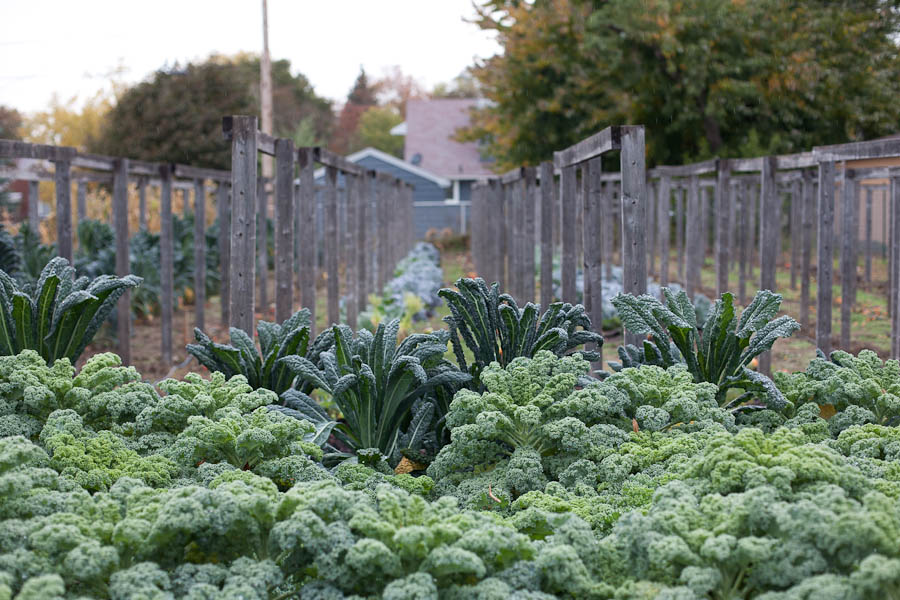Mission
“Executing justice for the oppressed and giving food to the hungry.” Psalm 146:7
Purpose
/ To practice gospel inspired creation care. /
Beliefs: unpacking our purpose
 / To practice /
/ To practice /
To rehearse, to do, to exercise. To practice implies consistency in action.
One interpretation of the meaning of practice is as a means to an end. Often when we think “practice” we think of some kind of hard work we need to do to get better, to win some prize, or achieve a goal. Practice makes perfect. Or at least practice can deliver a measure of progress.
But practices can just as much be ends in themselves. This is the way in which we are employing the term. For our purpose, to practice is not to work towards perfection or to achieve a goal, but to engage in activity that is its own reward. We believe these activities are the natural habits and rituals birthed by the Spirit of God, inherent to God’s creative work.
/ gospel /
“The gospel, however, is nothing else than the preaching and proclamation of the grace and mercy of God which Jesus Christ has earned and gained for us through his death. It is properly not something written down with letters in a book but more an oral proclamation and a living word: a voice which sounds forth into the whole world and is proclaimed publically so that we may hear it everywhere.” Martin Luther
Gospel = A Story.
We believe our human stories are understood through the story of the world, which is understood through the story of the gospel. The story of the gospel starts with a Triune God-Father, Son and Holy Spirit- who is love. The Triune God made the world and all that is in it. Humanity divorced the author and sustainer of life, resulting in many forms of death. But the Triune God is saving the world through an act of love and justice, the death and resurrection of the God-human named Jesus. The Triune God promises a new heavens and earth wherein our communion with God, one another, and all of creation will be perfected in love.
Gospel = An announcement.
The story of the Triune God’s salvation is called the gospel (from the Greek, Euaggelion). Gospel is different from law, religious or philosophical. Gospel means “good news,” and this news is an announcement. It is not a system of worship and submission, nor is it an intellectual theory based on knowledge or experience. The Christian gospel is an announcement of God’s action in time and space.
The Bible and the whole of the Christian faith has often been and remains today commonly misunderstood to be a guide into salvation or a how-to manual to make life better. This is common because people prefer stories where they play the central role. We would even rather try to imitate Christ than be disabled sinners who need to be saved by Christ. But the Bible is really an account of God’s promises and activity and salvation. God is the central actor, the Subject; we, as creatures, always start out as ontological objects. Jesus’ great command to “Love the Lord your God with all your heart, mind, soul and strength, and to love your neighbor as yourself” is prescriptive of what is right, yet by itself does not bring life. It is law. Law condemns and leads to pride and self righteousness or to fear and anxiety. (You’ve never seen religious people that are self righteous or fearful have you? </joke>) Law lacks the power to create such love in us. Gospel on the other hand is the word of God and therefore has power. When God speaks creation appears. The gospel is God speaking again and making a new creation. God is declaring us forgiven and justified, adopted and being made new, all on account of Jesus Christ’s death and resurrection. What God says makes reality.
Gospel = A power-filled gift.
This good news is received mysteriously and passively in faith and hope. And as we meditate on these promises, we experience in the present moment God’s perfect love casting out our fear and God’s grace humbling us into healthier and properly proportioned creatures. An experience of the gospel news enables us to confess with our mouths and believe in our hearts that “Jesus is Lord.” The goal of God’s salvation is to unite us to God’s self, and therein also reconciling us to created order. Christ, and the Holy Spirit who is Life, reside in us, animating the quality and character of God’s being in and through us.
Typically Christians suffer from amnesia, distraction, and idolatry, ignoring this divine gift and spending much of our days “doing the evil I do not want to do.” This makes even the healthiest gathering of believers a mess, riddled with mixed motives and contending agendas. However, the gospel stands true because it is a description of God’s love and commitment to creation, not creation’s ability to love God. God’s love is not discriminating or rewarding, God’s love is creative. God’s love makes and imparts value. Thank you God.
/ inspired /
Creation care is a virtuous cause. There are all kinds of motives for and ways to engage in virtuous causes. Individuals and communities engage in types of creation care and environmental stewardship for more reasons than we can enumerate. And we at Eighth Day Farm readily and heartily find merit in almost all these reasons and are glad these reasons are inspiring folks to take action. Our common cause permits many partnerships.
 However, we believe those who are being acted upon by the gospel can enter into these causes with a unique posture. There is a genus of freedom and confidence particular to gospel-inspired action because its place of origin is particular. Gospel-inspired action is more than the gospel inspiring us, it is the gospel recreating us, imparting a new self, a new identity outfitted with new desires. Human activity then becomes as such divine activity, because its locus resides in God. Using a good agricultural concept, the apostle says we are grafted into Christ. The fruit we bear comes from this union.
However, we believe those who are being acted upon by the gospel can enter into these causes with a unique posture. There is a genus of freedom and confidence particular to gospel-inspired action because its place of origin is particular. Gospel-inspired action is more than the gospel inspiring us, it is the gospel recreating us, imparting a new self, a new identity outfitted with new desires. Human activity then becomes as such divine activity, because its locus resides in God. Using a good agricultural concept, the apostle says we are grafted into Christ. The fruit we bear comes from this union.
Part of why this is important is that if our contribution to good causes is engineered by God, it then follows that God is responsible for its “success” or for the change. Gospel-inspired activity is not ego building. We are released from our successes and invited into thanksgiving before a gracious God. But the opposite holds true as well. When progress or change doesn’t come, when evil seems to prevail, we are released from the weight of failure and any guilt or shame. Then we must cling to God’s known promises in the face of our doubt. Why is God not dismantling this evil, where is God? The temptation is to believe God cannot be all wise or loving, or to dream up God’s absence. For certainly the facts of life can often be read as evidence of an absent or even maleficent God. This is where gospel offers us an ironic confidence. If God can bring eternal life and hope to a humanity who publicly executed his Son, and do this precisely through that gruesome betrayal and death, then this very gospel is alone the greatest proof that the evils oppressing us (from without and within) and the doubts we harbor do not have the final say.
Like the good book says, Jesus is a stumbling block to our natural wisdom. How can God be here or be working in all this mess? We want religions where God is full of glory and might, or where God can be accessed anywhere, and instead God gives us himself veiled in flesh, suffering, a friend of tax collectors and sinners, an impoverished Middle Eastern carpenter who doesn’t gain riches, who loses his health, and who’s mission remains misunderstood. This assertion has implications for how we go about and analyze our work.
Note: As an organization we had a number of conversations about how explicit we wanted to connect our work to our beliefs. Even in these conversations there existed a low-grade fear at work, “We don’t want to alienate people by using language that might offend. We want to be inclusive.” In most ways, the Christianity people have learned to reject is the opposite of the Christianity cited here. Traditional Christianity has tended to be an oppressive religion, very moralistic and conformist. So part of our hope is to invite others to the possibility that there is a legitimate gospel embedded in the Bible that not only differs from popular Christianity, but radically critiques it. But equally important is that this gospel is also not the mirror of humanist progressive thought. Simply abandoning the church to join the environmentalist club isn’t the answer.
It is the dominant trend in Western and increasingly global culture to turn away from conformity-driven cultural practices and towards a search for authentic individual freedom, riding on the assumption that the individual expressing herself as she pleases is capable of creating a better society. A great little book encouraging the development of human awareness and agency as a more hopeful path than conformity to authoritarian structures is Pedagogy of the Oppressed, by Paulo Freire. It’s premise is that “Education either functions as an instrument that is used to facilitate the integration of the younger generation into the logic of the present system and bring about conformity to it, or it becomes “the practice of freedom,” the means by which men and women deal critically and creatively with reality and discover how to participate in the transformation of their world.” As Christians interpreting this “either, or” we agree that legalistic conformity is a kind of slavery of the spirit, and one that gets designed by the powerful to benefit those on top, yet “the practice of freedom” in itself is no guarantee that we will become fully human in a way that is not oppressive. To the contrary, the gospel is good news because humans don’t possess all they need to become fully human, loving and free, yet God intervenes and speaks a new reality into being through Jesus. Jesus is the linchpin to this new reality, the necessary cornerstone. Our mission, purpose and purpose statement rest on this belief, that we cannot circumvent our Creator and be fully human.
/ creation care. /
Eighth Day Farm wants to change the way we understand creation care. When we in the church community think of creation care we almost immediately think in paternalistic, sentimental terms of our responsibility to take care of the natural world that surrounds us. We sing songs about God making the majestic mountains, the rivers and the seas and we place these images behind words on the big screen.
But what if we saw ourselves as nature? What if we didn’t think of creation as this other thing, this thing outside of us? What if creation included not only the birds, bees, and trees, but a person’s body, mind and spirit, the family, and human communities? Biblically, we humans are just as much “creation” as the whitetail deer. In fact, God was enjoying the world with its water, land, and animals before he placed humanity in the garden. Humans were a unique creature, made in God’s image, charged with special responsibilities (to serve and protect the earth), but creatures nonetheless. Creatures designed to live in interdependence with the rest of creation. Our bodies need clean air, water, nutrients, and even so, in the end we are compost like every other living thing. In this the old creation, life has cycles, life has limits. Our pride pretends we are above these limits. We want to believe we are more than creation, that we are gods on our own terms. But the Scriptures humble us, reminding us that we too are creation.
Getting past this us versus creation dichotomy allows us to better see the world for what it really is. When we place ourselves squarely in the realm of creation we become players in a new game, no longer referees. We need to give and take, not just take. God’s made us dependent upon the well-being of this global garden and the welfare of our human neighbor, and what we do to creation will come back to us. But it goes deeper than that. We don’t just serve and protect nature in order to preserve our place in nature. We serve and protect because the rest of creation has inherent worth-it is God’s handiwork and God loves it. Creation care boils down to God’s love.
 The fundamental work of God throughout time is creation care. Since the beginning of time God has cared for creation. And at the center of the gospel is God redeeming creation through the person and work of Jesus (Colossians 1:20). Our Triune God is a magisterial homemaker, who by his Spirit sustains life and through Jesus speaks new life/creation into being. And the Bible says God does all this because God is love. Care is a derivative of love. One cares for and nurtures what one loves.
The fundamental work of God throughout time is creation care. Since the beginning of time God has cared for creation. And at the center of the gospel is God redeeming creation through the person and work of Jesus (Colossians 1:20). Our Triune God is a magisterial homemaker, who by his Spirit sustains life and through Jesus speaks new life/creation into being. And the Bible says God does all this because God is love. Care is a derivative of love. One cares for and nurtures what one loves.
Therefore, one needs love to practice genuine creation care. But just saying this is not enough, because human love divorced from God is prone to all kinds of distortions that leave us empty in the end.
As we already discussed, gospel-inspired love of creation is different. God is again the creator, instilling this love in the new creation. We cannot manufacture this love or desire, it comes as God does the gospel to us –crucifying us with Christ and raising us anew. The self that is made anew shares the same body and will as the old self, but is “born again” to see with the eyes of the Spirit. The Spirit provides us with a fresh look into the motives of the heart, opening the door to see what it is we truly love and why this love is disordered.
Again Scripture points us to a great irony. As it turns out, the greatest obstacle to properly loving creation, is our very love for creation. The biblical concept that explores and explains this is idolatry. Idolatry is at the root of all sin. It is the sin beneath our sins. Idolatry is the human proclivity to love, to want, to depend on and seek refuge in some created thing more than in God. Therefore idolatry is a form of mistrust of God, an unbelief in God that is always accompanied by a trust in ourselves, in our ability to determine what is best for ourselves. Idolatry takes good things, things that were made to be enjoyed and loved, and makes those good things into ultimate things, things where we place our deepest hopes and desires, where we set our affections. It is precisely because the things we make into idols are so often good things in themselves that detecting idols proves so elusive. Matters are further complicated by the fact that our individual or personal idols never arise in a vacuum. As social creatures we tend to imbibe and help perpetuate cultural idols- things that our subculture, community, society, race, or nation prizes too greatly. It takes the Spirit, often using teachers and prophets grounded in the particularities of shared context to unmask these idols.
“When machines and computers, profit motives and property rights are considered more important than people, the giant triplets of racism, militarism and economic exploitation are incapable of being conquered.”
Martin Luther King Jr.
For example, Martin Luther King, Jr. named militarism, racism and materialism (connected to poverty) as the triple evils of our time. While we can certainly add to this list, these are indeed three powerful idols of our time. But how does love create violence, racial hatred, and economic exploitation of people and land? Remember idolatry is an over-love, a love that is out of proportion, out of balance. The New Testament word to describe this is epi-desire- a kind of desire inflated beyond its proper size. So take the desire to be safe or to protect. In itself it is a good instinct. But when we make our safety or security all-important we can mistakenly start to rationalize violence against others. Or when we adore characteristics of ourselves too much, like our skin color, we can deceive ourselves into thinking we are superior to those who are different. When we love money for any number of reasons (the comfort it brings, the pleasure it might “secure,” that status it might suggest), we readily justify ignoring or even exploiting sectors of creation to gratify our lust for material goods. This is why the work of many secular environmentalists functions well to critique a culture within Christianity that has placed profits above preservation, excessive consumption over prudent conservation. You are beginning to see how tricky this is. Anything and everything in creation (including the nonmaterial realm, like ideas) can be an idol. Idols are not idols in themselves, they receive their status only as the broken human heart elevates these created things or ideas higher than they out to be.
What this means then is not that Christians learn to hate the world in order to love God, but through being loved by an incarnated God they rightfully place God at the center of all things and re-order their love of creation. God is enough; creation is bonus material. This proper or balanced ordering of loves transforms our everyday encounters within creation in amazing ways. A more mystic oriented friend of mine likes to say: “I care, but I don’t care.” We have desires and they are good, but they don’t need to control us. We can be intensely invested and strangely detached, simultaneously. Can you imagine a church that was brave enough to spend all its time discussing and helping each other detect our personal and cultural idols, demoting all creation before the Creator? Think of how free from the typical tyrants of work, success, busyness, self-image and romance, piety and messiah complexes this community could become. And then that same church pronounces to each other God’s forgiveness in Christ and the promise of redemption, the basis for a whole new identity or way of being in the world. Now try to fathom being freed for something beyond our making- the kingdom of God. This new reality where love occupies every corner of creation, yielding unceasing shalom, because God is “before all things, and in him all things hold together.”
“In the Bible, shalom means universal flourishing, wholeness, and delight—a rich state of affairs in which natural needs are satisfied and natural gifts fruitfully employed, a state of affairs that inspires joyful wonder as its creator and savior opens doors and welcomes the creatures in whom he delights. Shalom, in other words, is the way things ought to be.”
Plantinga
God is behind and in front of, above and underneath all of creation, holding it in existence, breathing it into a being of complex interdependence. The bacteria and fungi are as necessary to the mix as us humans. God’s employed them to serve the soil, which serves the plants that enliven the air we breathe and nourish our bodies with the sun’s energy made edible. This is why a gospel-inspired care for creation is always holistic and balanced. Taking care to honor not only the distinct creatures as objects of God’s love, but to uphold the sacred way in which God has interwoven the lives of creation. In this view, our love runs seamlessly from stewardship of land, water and air to care for our neighbor. We recognize the Bible’s call to serve and protect this global garden as an indispensable part of God’s call to love our neighbors as ourselves. So when we wish to love the marginalized and the poor, as well as the rich young ruler; and to love spouses faithfully and children unconditionally; and to love neighbors and enemies alike; and to welcome strangers and foreigners into our neighborhoods and homes, and to the usher the unborn safely through birth—these acts of love are a united and single impulse flowing from the heart of God into us by his Spirit through his gospel.
“So, friends, every day do something that won’t compute. Love the Lord. Love the world. Work for nothing. Take all that you have and be poor. Love someone who doesn’t deserve it…invest in the millennium. Plant sequoias. Say that your main crop is the forest that you did not plant, that you will not live to harvest. Say that leaves are harvested when they have rotted into the mold. Call that profit.”
Wendell Berry

